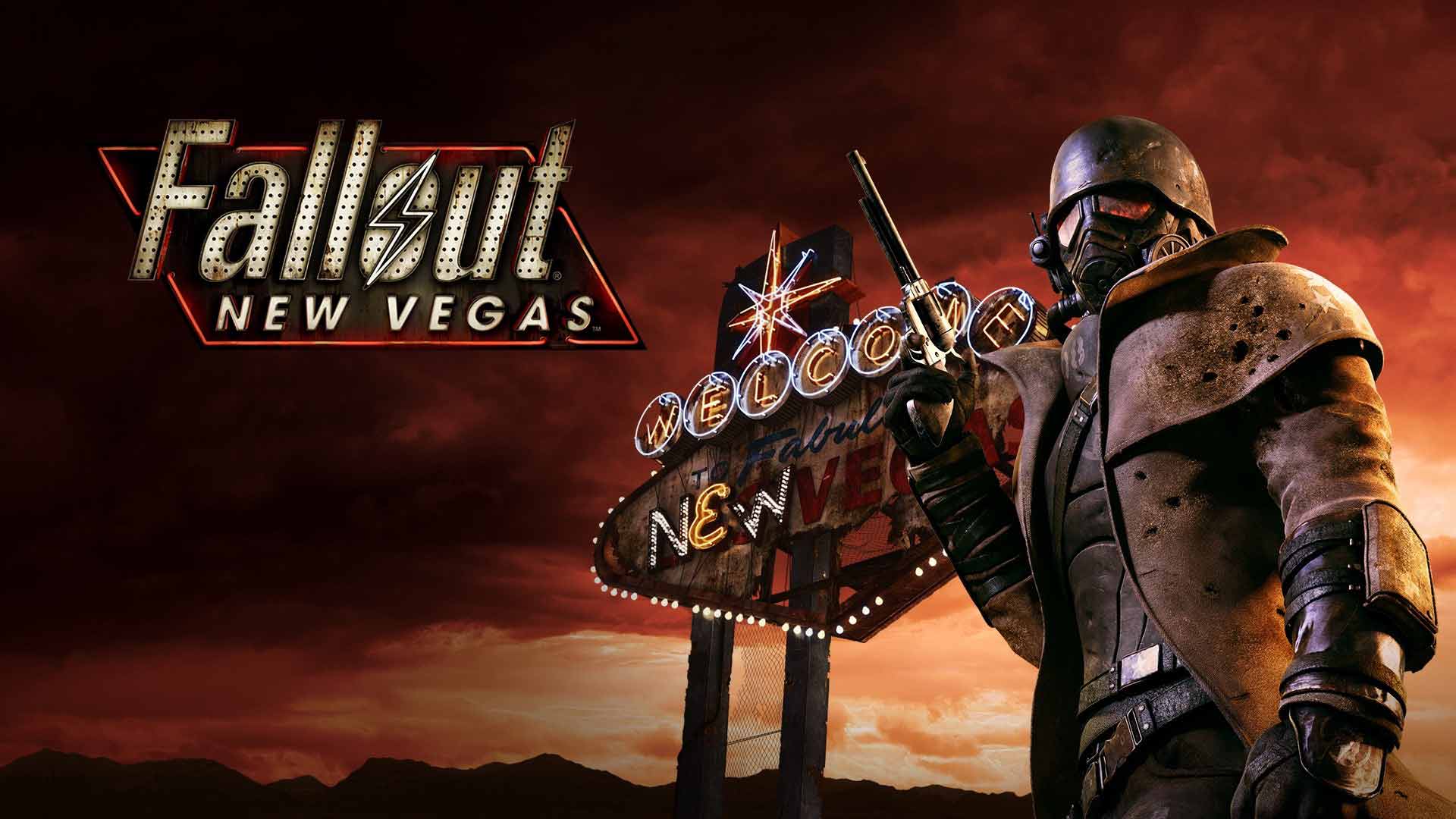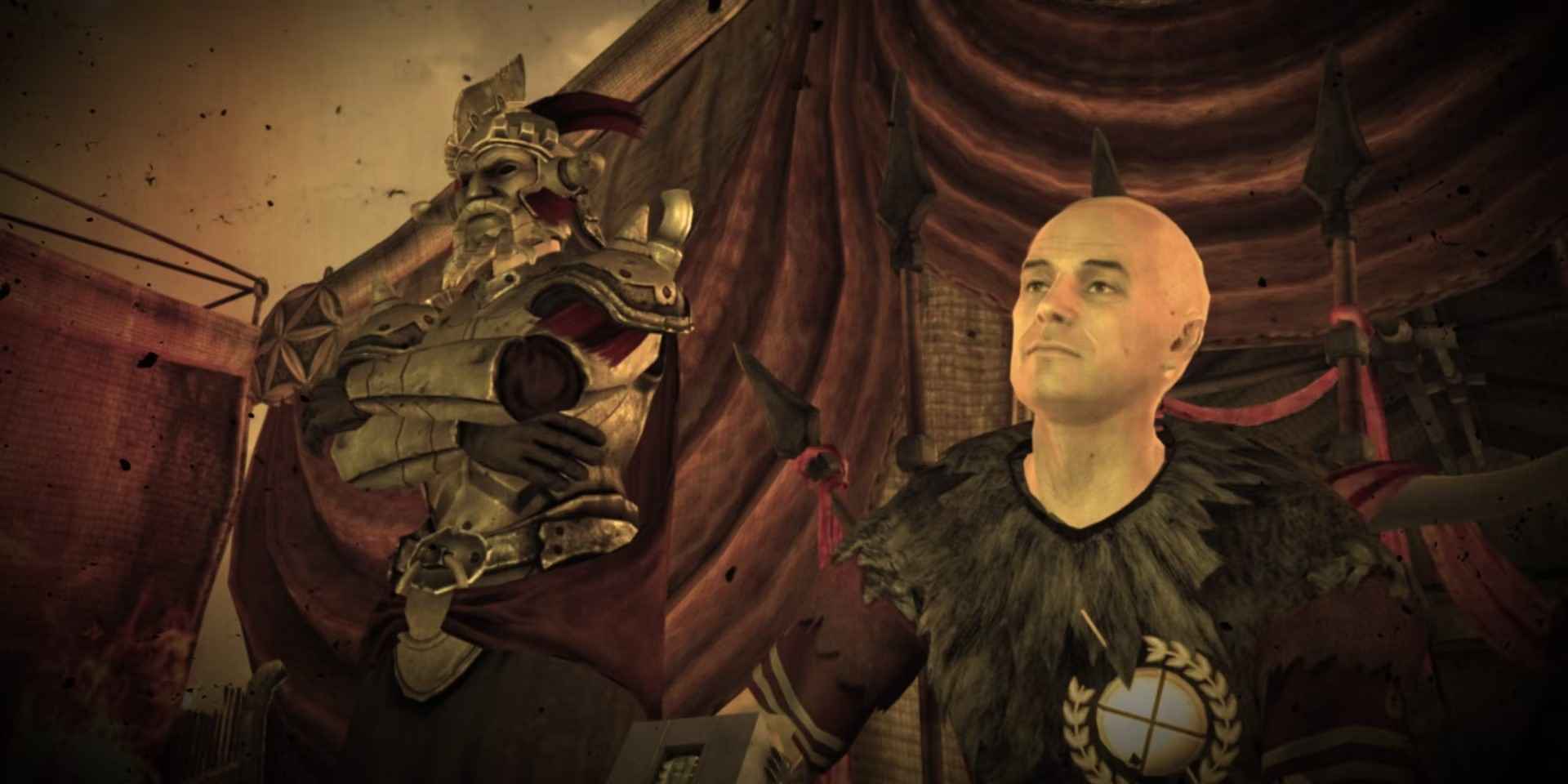
The Caesar’s Legion is one of the most feared and powerful groups in Fallout New Vegas. Its leader, Caesar, has his own philosophy that the legion follows. This essay explores the philosophy of Caesar in Fallout New Vegas.
RELATED: The Nations of Dragon’s Dogma
Before becoming this cruel tyrant, Caesar’s name was Edward Sallow and he was with the Followers of the Apocalypse. A hostage situation he faced on an expedition was the catalyst for him to form the legion along with Joshua Graham.
The Philosophy of Caesar
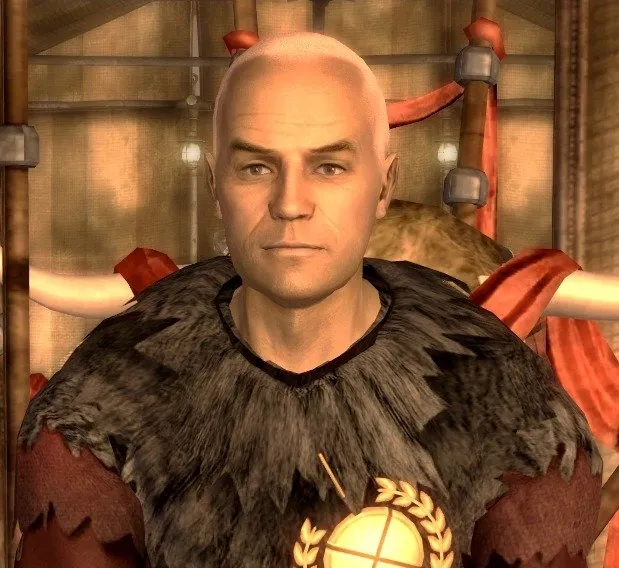
Caesar was clearly greatly influenced by the ideologies and politics of ancient Rome. The world of Fallout is not for the faint-hearted, and Caesar knows this. That’s why his legion relies on strength, power and brutality. Many ideologies and concepts that built the legion originated in the ancient Roman Empire. Still, some of these ideologies lack accuracy when we directly compare them to those of the Roman Empire. But I shall not delve too deep into pointing out the flaws and inaccuracies within his philosophy and only focus on explaining what it is.
One of the main reasons Caesar saw the Roman Empire as so influential and superior to many other civilisations was that the emperor held the most power in the government. The entire state runs on the ideology of the emperor. This is why Caesar’s legion is incredibly dictatorial; there’s no democracy within it and that’s one of the biggest reasons why the NCR opposes it.
Caesar expects every citizen to agree to the laws, customs and ideologies of the Legion and follow them without question. In order to keep the citizens from rebelling, he utilises brutality and ruthlessness. Fear controls his civilisation to a great degree. By controlling its citizens greatly and simultaneously conquering tribes and societies, Caesar aimed to prevent wars that would cause further destruction.
In short, with his ruthless ways and extreme control over the people, Caesar disregards a citizen’s personal identity and instead makes him a part of the legion. This society is not about personal fulfilment, it’s all about serving the state and preserving it. You can see that it’s successful in many ways because, despite the cruelty and ruthlessness that’s so obvious within the legion, the success of trade, survival and power remains active always.
The Legion shares one singular identity and ideology: that of Caesar’s. There is no chance for individuals to rebel or act in their own free will; the only thing one does in the legion is serve the state.
Hegelian Dialectics
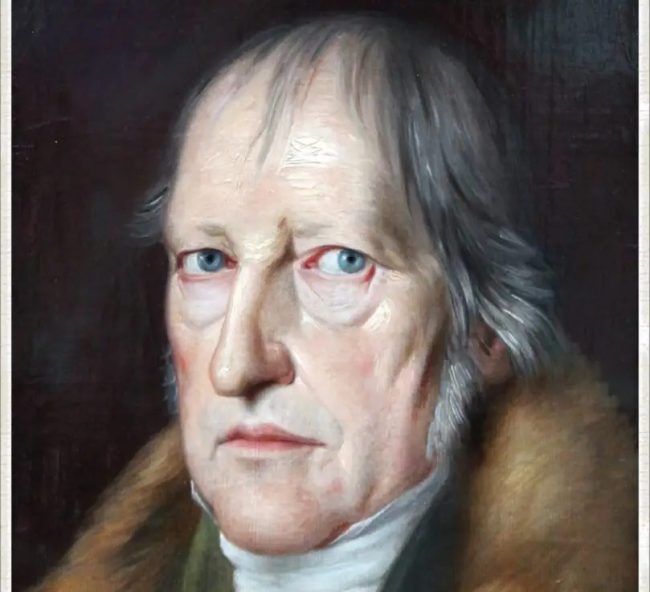
This is another section that I wanted to talk about in detail in this essay. Johann Gottlieb Fichte was a philosopher and a pioneer of the German Idealist movement. He used the terms “thesis, antithesis and synthesis” to describe his dialectical method. These terms are almost always, falsely attributed to Georg Wilhelm Hegel, another philosopher who was active after the time of Fichte. Caesar uses the terms “thesis, antithesis and synthesis” believing that those terms were used in Hegel’s dialectical method which is superior to Fichte’s. In this, Caesar has misunderstood Hegelian Dialectics in many ways and he only understands the most elementary level of Hegel’s full method. Nonetheless, let’s discuss that.
The dialectical method as Caesar describes it consists of the three terms we discussed above. A thesis is a statement of sorts that points out something regarding a subject. An antithesis is a logical argument that aims to negate the thesis – a counterargument of sorts. The thesis and the antithesis then collide until another argument appears: a synthesis. The synthesis resolves the collision between the thesis and the antithesis by pointing out the common facts in both the thesis and the antithesis and forming a greater idea or argument than both of them – essentially, the synthesis is a new thesis that’s superior to the previous thesis and the antithesis. Again, this new thesis naturally evokes another antithesis. And they collide until a new synthesis is formed – which becomes another new thesis that’s superior – and so on.
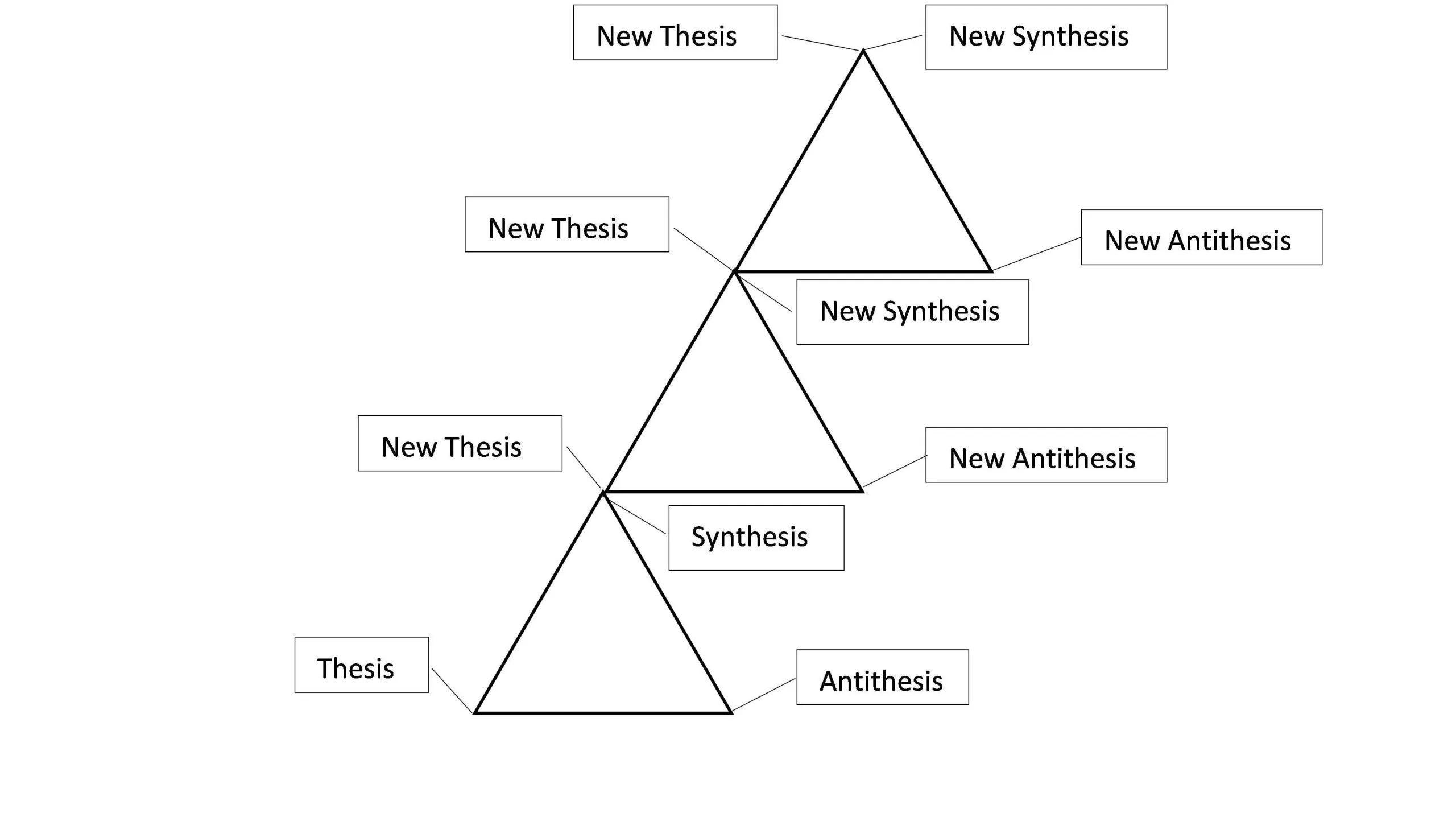
“Each dialectic begins with a proposition, a thesis… …which inherently contains, or creates, its opposite – an antithesis. Thesis and antithesis. The conflict is inevitable. But the resolution of the conflict yields something new – a synthesis – eliminating the flaws in each, leaving behind common elements and ideas.” – Caesar
According to Caesar, the thesis here is the Legion. The antithesis is the NCR. Naturally, the thesis and the antithesis collide here. But this conflict will be resolved after a new synthesis is formulated: a new thesis that eliminates the flaws in both the Legion and the NCR, leaving common elements and ideas.
With ‘Hegelian’ dialectics, Caesar explains why he seeks to destroy the NCR: because this conflict will yield a synthesis.
Caesar’s illness
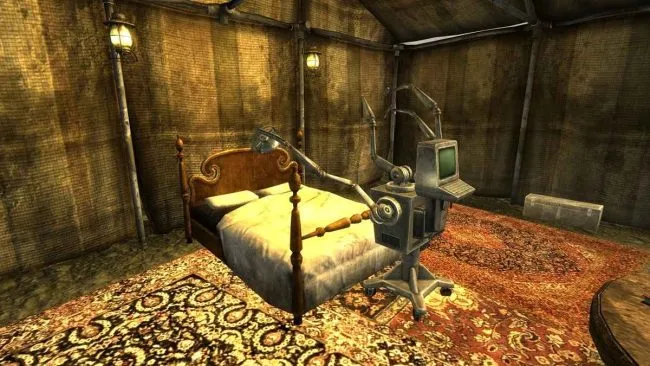
Caesar completely despises modern medicine and orders the legion to use healing powder and other outdated medicinal methodologies instead of relying on chems or even stimpaks. But you will see that in his tent, there’s an auto-doc, meaning he secretly uses modern medical methods because he suffers from a tumour. This is an example of Caesar himself not following his own philosophies. Inconsistencies such as this point out why Caesar’s leadership is not as excellent as he or the legion thinks.
The legion’s philosophy is actually quite clever in many aspects. But the ruthlessness and irrational beliefs like not using modern medicine and relying on indigenous healing are flaws within it. In conclusion, the dialectical method could work and make a new synthesis that’s greater than the NCR or the Legion could arise. The collective ideology of serving the state instead of focusing on personal fulfilment could lead to a nation that’s able to survive in the wasteland for the longest. And it’s safe to say that not all aspects of the legion are bad.
RELATED: Why the Courier is one of gaming’s most powerful characters
